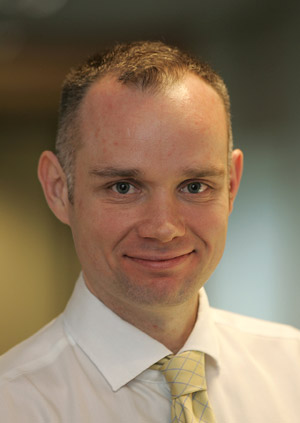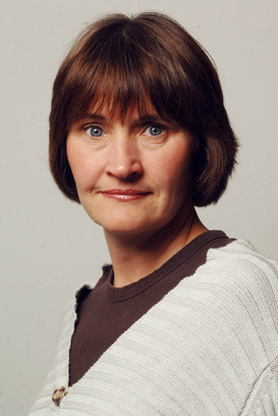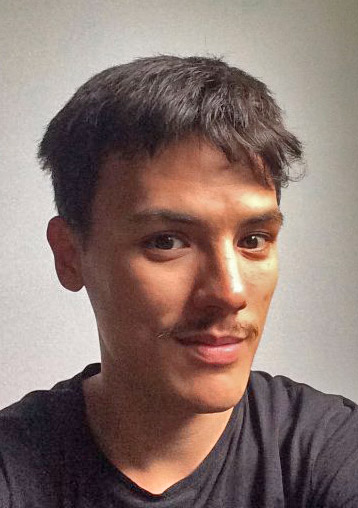Posted on April 6, 2018 by The Orwell Prize -

There are 670,000 children in England living in families regarded as high risk whose privations are mostly invisible to the authorities. My special investigation – The Lost Childhoods – surfaces this otherwise unseen report by the Children’s Commissioner and depicts the tough lives of some of these forgotten children, such as child carers and children living in secret domestic abuse safe houses. My series generated a special debate in the House of Lords as well as a vociferous response from readers who also set up crowdfunding pages for several of the children featured.
Social media & audience response
Posted on April 6, 2018 by The Orwell Prize -

The material submitted consists of work investigating the causes and impact of the housing crisis, which followed my work on Big Capital: Who is London for?, my book on the housing crisis. The journalistic submissions include a ‘Long Read’ extract from Big Capital in the Guardian and two pieces for the Guardian on the causes and wider implications of the Grenfell fire. Also included is a podcast from an event at the London Review Bookshop and a video of a public debate on the housing crisis at the London School of Economics.
Video content
What is housing for? LSE public lecture
Audio content
Anna Minton in conversation with Oliver Wainwright, London Review Bookshop
Posted on April 6, 2018 by The Orwell Prize -

“On the Edge was a piece of vivid, hard-hitting journalism, combining people’s experiences, data and analytic insight to show how so many people are being locked out and left behind by the way our economy works.” – Campbell Robb
“A brilliant combination of ice cold analysis, real human interest, great use and presentation of data and limpid writing – all of which takes the problems of one seaside town and sets them in a far wider context.” – Nick Timmins
Video content
Posted on March 15, 2017 by The Orwell Prize -

‘Behind Closed Doors’ was a one hour documentary broadcast in peak-time on BBC1 at 9pm on 14th March 2016. Three women waived their right to anonymity to allow their stories of domestic abuse to be captured over a year. Working with Thames Valley Police Domestic Abuse Units, the film explores not just physical violence but also shows the psychological, verbal and emotional control abusers have over their victims as the audience watches each victim trying to extract themselves from their perpetrators. The film also exposes the ordeals of going to court to seek justice – and the deep inadequacies in the criminal justice system as one abuser repeatedly walks free. The film was watched live by 3.1 million people and trended first on Twitter for over an hour on the evening of transmission.
Journalistic Writing, Video, Audio and Social Media Content
Posted on March 15, 2017 by The Orwell Prize -

Rossalyn exposed how tabloids recycle the same stories with the same dozen or so single mothers claiming benefits over and over again, and how they work with agents to coordinate media coverage of people living in near poverty. Her story helped shape the British public’s understanding of the reality of benefit claimants vs the depiction in the media, one that fuels hatred for those on benefits, especially single mothers with many children. She tracked down and interviewed an agent who organises the press of one mother (she’s been in more than 50 stories about “scrounging” mothers in the UK in the last few years alone), but found he also helps fights her battles against the DWP. And speaking to charities, they say that she doesn’t represent the true extent of single parents on benefits.
Journalistic Writing and Social Media Content
Posted on March 15, 2017 by The Orwell Prize -

Drug companies who preyed on the sick and vulnerable when they hiked prices for vital medicines by up to 12,500 per cent were exposed by a Times investigation whose impact will save the NHS hundreds of millions of pounds each year. Billy Kenbers campaigning articles – more than 20 over six months – triggered a change in the law, a regulatory inquiry expected to result in huge fines and the near-bankruptcy of a billion-dollar pharmaceutical firm. At a time when the NHS is under unprecedented financial strain, he revealed how a small group of profiteering companies had exploited a loophole in pricing rules to impose dramatic price increases costing taxpayers an extra £262 million a year. Urgent legislation tabled by the government in response will enable the NHS to impose new price limits.
Journalistic Writing and Social Media Content
Posted on March 15, 2017 by The Orwell Prize -

The story highlighted the growing social phenomenon of far right groups using social and charitable causes to further their racist agenda. The Neo-nazi group called National Action set up a ‘whites only’ foodbank to recruit homeless people. Members also lauded the murder of MP Jo Cox. The story had a hugely successful outcome after the group was blocked by Home Secretary Amber Rudd after she branded them a “racist, anti-Semitic and homophobic organisation”.
Journalistic Writing and Social Media Content
Posted on March 15, 2017 by The Orwell Prize -

Ros Wynne-Jones has been leading the Daily Mirror’s opposition to the Bedroom Tax since its inception in April 2013. Dozens of stories in her Real Britain column, throughout the paper and online have shown not only its cruelty towards individual families, but its incompetence as a policy that does nothing to improve the national housing crisis. In extraordinary year, she followed families all the way to the Supreme Court, where some defeated the Secretary of State, and testified to the UN on their behalf. The campaign has also been run through the Mirror’s Facebook page, on twitter and in Parliament, alongside trade unions, and in unique collaboration with grassroots activist groups. Its also has spearheaded opposition against other welfare cuts.
Journalistic Writing and Social Media Content
Posted on March 15, 2017 by The Orwell Prize -

The result of the Brexit vote came as a shock to many commentators but perhaps not to those who had read Felicity Lawrence’s prescient long read on the world of migrant gangwork in Wisbech. Lawrence spent months getting beneath the clichés to unpick the reality of life in one of the country’s areas of highest migration, explaining why local residents had become so angry and alienated. Using the framework of one Latvian organised crime group, she painstakingly uncovered a parallel world in which illegality flourished. She described how a state in retreat had allowed foreign organized crime groups to thrive, brutally exploiting fellow migrants while leaving locals feeling abandoned by all except the far right.
Journalistic Writing and Audio Content
Posted on March 15, 2017 by The Orwell Prize -

The piece is an investigation into a group of friends from Brighton who join a jihadist group in Syria. It attempts to examine what motivates young Britons to fight in faraway conflicts, what we might learn from their experiences and scrutinises the role of the state and public policy in counter-radicalisation. Based on a massive cache of leaked confidential documents alongside interviews with friends and family, police and intelligence sources that took place over seven months, the article offers a uniquely forensic insight into the radicalisation process.
Journalistic Writing and Video Content
Posted on March 15, 2017 by The Orwell Prize -

After some lengthy investigative work, Peter was leaked an internal report by Transport for London. It revealed a 121% increase in reports of rough sleeping on London’s night buses over the past four years. But numbers only tell part of the story, and this data needed to be contextualised and humanised. The report showed that the worst affected bus route for rough sleepers in London was the number 25 – and so this became the centre of the story. It passes through large parts of central London, making it likely that people will know about the bus – perhaps they have even take it before, or use it every day. The aim was to bypass the compassion fatigue that often comes with depressing headlines. The case studies are given prominence, with imagery and audio recordings.
Journalistic Writing, Audio and Video Content
http://ajourneyonthe25.com/
Posted on March 15, 2017 by The Orwell Prize -

Football’s sexual-abuse scandal has been described by the FA chairman Greg Clarke as the worst crisis he can remember and the biggest story within the sport for generations. That began with Daniel Taylor’s interview with former footballer Andy Woodward and has also seen him tell the stories of many other ex-players. By December 21 the National Police Chiefs’ Council had confirmed detectives were examining possible attacks on 429 people who had come forward since Taylor’s article, with 155 potential suspects identified and 148 clubs, at all levels, named. Taylor continued to play a central role via further exclusive news stories – revealing how warnings had been ignored by clubs – and his work has led to the creation of the Offside Trust, a new organisation supporting victims.
Journalistic Writing and Social Media Content
Posted on March 15, 2017 by The Orwell Prize -

The RBS Dash for Cash investigation exposed how Britain’s biggest taxpayer-owned bank deliberately killed or crippled thousands of businesses in a deliberate plan to add billions of pounds to its balance sheet in response to government pressure to cut lending and bolster profits. Based on an explosive cache of thousands of leaked documents and extensive interviews, the investigation shone a light on the hidden consequences of the public bailout for British businesses and the inherent conflicts in the regulation of government-owned banks. MPs called it “the biggest single scandal since the 2008 crisis” and referred the bank to the SFO. In the wake of the story, the city regulator found RBS guilty of systematic abuse of small firms and the bank announced a £400m compensation scheme.
Journalistic Writing and Video Content
Posted on March 15, 2017 by The Orwell Prize -

The reports expose the precarious and fragile nature of employment in Britain for almost a million people on zero-hour contracts who can be easily exploited by companies wanting a cheap and compliant workforce. Channel 4 goes undercover in JD Sports, Britain’s biggest sporting retailer. Their reporter was put on a zero-hours contract with an agency who supply hundreds of workers on minimum wage to its warehouse in Rochdale. Over 5 weeks their reporter worked gruelling 12 hours shifts. She’s told she’ll be sacked for sitting down, disciplined for missing targets, and must adhere to a “three strikes and you’re sacked” policy rigorously enforced by JD Sports staff. Airport style security checks can take up to 20 minutes and are unpaid, leaving workers effectively earning less than the minimum wage.
Journalistic Writing, Video Content and Social Media Content
Posted on March 15, 2017 by The Orwell Prize -

Through weekly columns, a data and explainer series, social media and audio reporting, Dawn has worked to show the complexity of the housing crisis afflicting Britain, how it differs geographically, particularly focusing on how the poorest and most vulnerable in society are evicted, forced into arrears and have very little choice in housing. The predominant narrative on housing problems in the UK focuses on home ownership: Dawn has worked to amplify the voices of and problems affecting people for whom home ownership is unlikely to ever be an option: women fleeing domestic violence, families stuck in temporary accommodation or moved out of the borough they and their children are settled in, and households forced into rent arrears due to various government policies.
Journalistic Writing, Video and Audio Content
Posted on March 2, 2016 by The Orwell Prize -

Journalistic Writing
Video Content
Posted on March 2, 2016 by The Orwell Prize -

Maeve McClenaghan works for the Bureau of Investigative Journalism She tweets @MaeveMCC
Journalistic Writing
Audio Content
Posted on March 2, 2016 by The Orwell Prize -

Michael Buchanan’s investigation into Southern Health exposed the failure of one of England’s biggest mental health trusts to investigate the unexpected deaths of hundreds of mental health patients and people with learning disabilities. The items were the product of weeks of sensitive and challenging conversations with those affected – several people broke down as they recalled the poor care their son or daughter had received prior to their death; many told us they were astonished that we were interested in hearing their stories after their own often repeated efforts had been ignored by the trust, regulators and others. The investigation led to the Health Secretary being forced to come to the House of Commons to answer urgent questions, where he announced a nationwide inquiry into how the NHS as a whole investigates the deaths of people with learning disabilities. Michael says “The stories we uncovered as part of this extensive investigation have given a voice to some of society’s most vulnerable individuals – mental health patients, people with learning disabilities – and have made it harder for the NHS to ignore their concerns. The mid-Staffs scandal highlighted poor practices in acute care; the failings we exposed at Southern Health have shone a light on the problems within mental health trusts, with few deaths investigated and lessons rarely learned from previous incidents.”
Journalistic Writing
Video Content
- Investigation into NHS Failings – 09/12/2015, BBC 1 10 O’Clock News
Audio Content

















